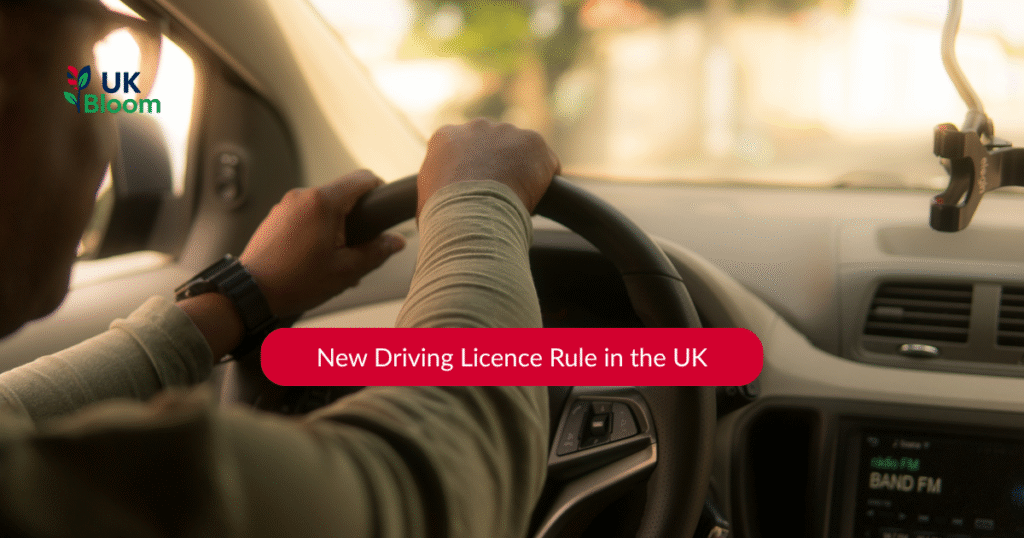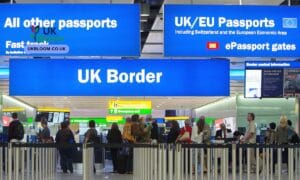Introduction to the Changes
If you drive in the UK, you need to pay attention—2025 brings some big updates to driving licence rules. Whether you’re just learning to drive or have decades of experience behind the wheel, these changes might affect how you drive, renew, or even prove your identity.
Why These New Rules Matter
The UK government is modernising driving regulations to boost safety, streamline services, and embrace digital innovation. It’s more than red tape—this is about smarter and safer roads.
When Did the New Rules Come Into Effect?
Most changes officially rolled out in April 2025, although a few (like digital licences) are being phased in gradually through the year.
Overview of the New Driving Licence Rule in the UK
Let’s break down the most important rule changes hitting the roads this year:
Digital Driving Licences
The UK is going digital. Drivers can now download their full driving licence on the DVLA mobile app.
New Medical Fitness Requirements
From eyesight to chronic conditions—drivers now face stricter medical screenings, especially those in higher-risk groups.
Age-Based Renewals and Assessments
If you’re 70 or over, your licence renewal now comes with extra checks. Don’t ignore those reminders!
EU to UK Licence Conversions After Brexit
Post-Brexit drivers from the EU have new deadlines and processes for licence conversion. The grace period is over.
Table of Contents
What Is a Digital Driving Licence?
How It Works
The DVLA now offers a secure digital copy of your licence through its official app. It syncs directly with government records and updates in real-time.
Benefits of Digital Licences
- No more worrying about lost cards
- Real-time updates for address or penalty points
- Faster identity verification during traffic stops
Privacy and Security Concerns
The DVLA promises bank-level encryption and biometric access. Still, some worry about potential data misuse or hacking.
Updated Medical Fitness Standards
Eye Test Requirements
Drivers now need proof of regular optician-approved eye tests, especially during renewals at age milestones (e.g., 50, 60, 70).
Reporting Chronic Conditions
Conditions like diabetes, epilepsy, or heart issues must be reported with greater transparency—or risk your licence being revoked.
Impact on Elderly Drivers
If you’re over 70, you’ll face mandatory re-evaluations every 3 years instead of 10. Medical and vision checks are non-negotiable.
Rule Changes for Provisional Licence Holders
Extended Validity Period
Good news—provisional licences now last four years instead of three, giving learners more breathing room.
Supervised Driving Requirements
Learners must log minimum supervised driving hours before booking a test—think of it as a driving version of “flight hours.”
Minimum Learning Hours
New law requires at least 40 hours of supervised driving before you can take your test. Yep, even if you’re a natural.
International Drivers in the UK
Recognition of Foreign Licences
Drivers from “designated countries” like Canada, Australia, and Japan can still exchange licences without testing—but there are now stricter timelines.
New Testing Requirements
Non-EU, non-designated country licence holders must now pass both theory and practical tests in the UK, even if they’ve driven for years.
Time Limits to Exchange a Licence
You now have 12 months from the date you become a resident to swap your foreign licence—or you’ll need to retake everything from scratch.
Renewals and Retesting After a Certain Age
Age 70+ Mandatory Checks
Drivers over 70 must renew every 3 years, including medical and vision updates. Miss this, and you’re off the road.
Online Renewal System
Renewals can now be done 100% online through the DVLA site—no more paper forms, unless you ask.
New Penalties and Enforcement Policies
Stricter Fines for Non-Compliance
Fail to report a medical condition or drive on an expired licence? Expect fines up to £1,000.
Licence Suspensions and Revocations
The DVLA now revokes licences automatically if you’re flagged as medically unfit or non-compliant.
Use of AI in Driving Record Monitoring
AI tech now monitors driving records in real time to catch invalid or expired licences.
How to Apply or Renew Under the New Rules
Step-by-Step Guide
- Visit the DVLA website
- Log in or create a GOV.UK Verify account
- Upload documents (ID, proof of address)
- Complete the health self-assessment
- Pay the renewal fee online
- Download the digital copy to your phone
Documents You’ll Need
- Valid ID (passport or biometric card)
- Proof of address
- Medical certificates (if required)
- Driving record number
Common Mistakes to Avoid
- Not updating your address
- Ignoring reminders
- Failing to disclose health conditions
DVLA and Technology Integration
Mobile App Features
- Real-time licence view
- Penalty points tracking
- Identity verification for employers
QR Codes and Real-Time Updates
Digital licences include scannable QR codes that police or employers can verify instantly.
Enhanced Verification for Employers and Law Enforcement
HR departments and law enforcement now have instant DVLA database access for background checks.
Impact on Driving Schools and Learners
Curriculum Updates
Driving schools must now include digital literacy training, new rules education, and extended supervised practice.
New Instructor Certifications
Instructors need updated certifications to teach under the new rules—especially around digital and medical compliance.
Cost Implications for Learners
Unfortunately, more hours = higher costs. Expect average lessons to rise in price due to longer learning periods and tech integration.
Public Reaction and Controversies
Supporters’ View
Proponents argue these updates improve road safety and make driving more convenient in the digital age.
Critics and Concerns
Critics raise privacy concerns and fear the elderly will be unfairly penalised.
What Surveys Say
A recent RAC survey showed 65% of drivers support digital licences, while 30% fear tech errors may wrongly flag their licences.
Future Predictions for UK Driving Licences
Fully Digital Driving Identity
By 2030, physical cards may disappear altogether—digital will be the norm.
Integration with Vehicle Systems
Imagine your car syncing with your licence to verify your ability to drive. It’s closer than you think.
Autonomous Vehicle Compatibility
As self-driving cars become mainstream, expect licence rules to evolve with AI-based systems.
Tips to Stay Compliant and Informed
How to Stay Updated
- Sign up for DVLA alerts
- Follow official news channels
- Check the gov.uk site regularly
Trusted Resources
- gov.uk/driving-licence
- DVLA App Store page
- RAC and AA newsletters
Using DVLA Alerts and Newsletters
They’re free, fast, and keep you on the right side of the law.
Conclusion
Change can be a pain—but this one might actually help. With new digital features, stricter safety checks, and fairer rules for all drivers, the 2025 UK driving licence update aims to make roads safer, smarter, and simpler. Stay informed, stay compliant, and keep driving forward.
FAQs
1. What is the biggest change in the new driving licence rule?
The introduction of digital driving licences and stricter medical fitness checks.
2. Can I still use my paper licence?
Yes, but digital licences are now encouraged and may eventually replace physical ones.
3. Do I need to take another test if I’m over 70?
Not always, but you will need medical checks and renew every 3 years.
4. How do I get the digital version of my licence?
Download the DVLA app, verify your identity, and sync with your existing records.
5. Are international licences still valid in the UK?
Some are, but you must exchange within 12 months of becoming a UK resident.






